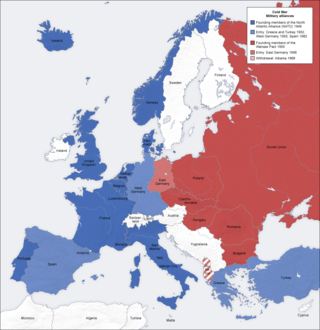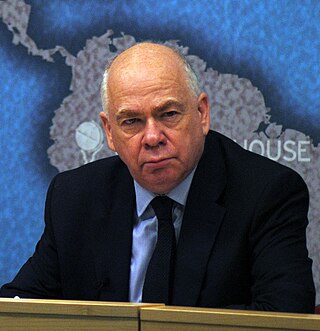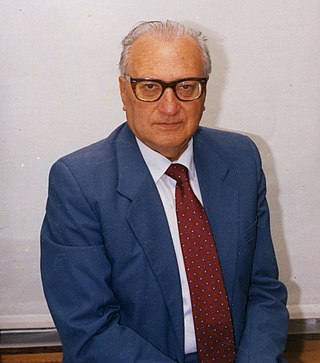
The Suez Crisis or the Second Arab–Israeli War, also referred to as the Tripartite Aggression in the Arab world and as the Sinai War in Israel, was a British–French–Israeli invasion of Egypt in 1956. Israel invaded on 29 October, having done so with the primary objective of re-opening the Straits of Tiran and the Gulf of Aqaba as the recent tightening of the eight-year-long Egyptian blockade further prevented Israeli passage. After issuing a joint ultimatum for a ceasefire, the United Kingdom and France joined the Israelis on 5 November, seeking to depose Egyptian president Gamal Abdel Nasser and regain control of the Suez Canal, which Nasser had earlier nationalised by transferring administrative control from the foreign-owned Suez Canal Company to Egypt's new government-owned Suez Canal Authority. Shortly after the invasion began, the three countries came under heavy political pressure from both the United States and the Soviet Union, as well as from the United Nations, eventually prompting their withdrawal from Egypt. Israel's four-month-long occupation of the Egyptian-occupied Gaza Strip and Egypt's Sinai Peninsula enabled it to attain freedom of navigation through the Straits of Tiran, but the Suez Canal itself was closed from October 1956 to March 1957. The Suez Crisis led to international humiliation for the British and the French in the wake of the Cold War, which established the Americans and the Soviets as the world's superpowers. It also strengthened Nasser's standing.

Salah Jadid was a Syrian military officer and politician who was the leader of the left-wing of the Syrian Regional Arab Socialist Ba'ath Party, and the country's de facto leader from 1966 until 1970, when he was ousted by Hafez al-Assad's Corrective Movement.
Walter Ze'ev Laqueur was a German-born American historian, journalist and political commentator. He was an influential scholar on the subjects of terrorism and political violence.

After the Russian Revolution, in which the Bolsheviks took over parts of the collapsing Russian Empire in 1918, they faced enormous odds against the German Empire and eventually negotiated terms to pull out of World War I. They then went to war against the White movement, pro-independence movements, rebellious peasants, former supporters, anarchists and foreign interventionists in the bitter civil war. They set up the Soviet Union in 1922 with Vladimir Lenin in charge. At first, it was treated as an unrecognized pariah state because of its repudiating of tsarist debts and threats to destroy capitalism at home and around the world. By 1922, Moscow had repudiated the goal of world revolution, and sought diplomatic recognition and friendly trade relations with the capitalist world, starting with Britain and Germany. Finally, in 1933, the United States gave recognition. Trade and technical help from Germany and the United States arrived in the late 1920s. After Lenin died in 1924, Joseph Stalin, became leader. He transformed the country in the 1930s into an industrial and military power. It strongly opposed Nazi Germany until August 1939, when it suddenly came to friendly terms with Berlin in the Molotov–Ribbentrop Pact. Moscow and Berlin by agreement invaded and partitioned Poland and the Baltic States. Stalin ignored repeated warnings that Hitler planned to invade. He was caught by surprise in June 1941 when Nazi Germany invaded the Soviet Union. The Soviet forces nearly collapsed as the Germans reached the outskirts of Leningrad and Moscow. However, the Soviet Union proved strong enough to defeat Nazi Germany, with help from its key World War II allies, Britain and the United States. The Soviet army occupied most of Eastern Europe and increasingly controlled the governments.

Mustafa Abdul Qadir Tlass was a Syrian senior military officer and politician who was Syria's minister of defense from 1972 to 2004. He was part of the four-member Regional Command during the Hafez Assad era.

Gabriel Gorodetsky is an Israeli academic who is the Quondam Fellow of All Souls College, Oxford, and emeritus professor of history at Tel Aviv University. Gorodetsky studied History and Russian Studies at the Hebrew University in Jerusalem and went on to obtain his Ph.D degree under the supervision of British historian E. H. Carr in Oxford. He was the director of the Cummings Center for Russian Studies at Tel Aviv University from 1991–2007. He has been a visiting fellow of St. Antony's College in Oxford in 1979 and in 1993, of the Woodrow Wilson International Center for Scholars in Washington in 1986, of All Souls in Oxford in 2006, and a visiting scholar at the Institute for Advanced Study in Princeton. Gorodetsky was also a visiting professor at the universities of Munich and Cologne, and at the Central European University in Budapest. In 2010 Gorodetsky received an honorary doctorate from the Russian State University for the Humanities in Moscow.

This is an English language bibliography of scholarly books and articles on the Cold War. Because of the extent of the Cold War, the conflict is well documented.

United States foreign policy in the Middle East has its roots in the early 19th-century Tripolitan War that occurred shortly after the 1776 establishment of the United States as an independent sovereign state, but became much more expansive in the aftermath of World War II. With the goal of preventing the Soviet Union from gaining influence in the region during the Cold War, American foreign policy saw the deliverance of extensive support in various forms to anti-communist and anti-Soviet regimes; among the top priorities for the U.S. with regards to this goal was its support for the State of Israel against its Soviet-backed neighbouring Arab countries during the peak of the Arab–Israeli conflict. The U.S. also came to replace the United Kingdom as the main security patron for Saudi Arabia as well as the other Arab states of the Persian Gulf in the 1960s and 1970s in order to ensure, among other goals, a stable flow of oil from the Persian Gulf. As of 2023, the U.S. has diplomatic relations with every country in the Middle East except for Iran, with whom relations were severed after the 1979 Islamic Revolution, and Syria, with whom relations were suspended in 2012 following the outbreak of the Syrian Civil War.

Sir Lawrence David Freedman, is a British academic, historian and author specialising in foreign policy, international relations and strategy. He has been described as the "dean of British strategic studies" and was a member of the Iraq Inquiry. He is an Emeritus Professor of War Studies at King's College London.

Aaron David Miller is an American Middle East analyst, author, and negotiator. He is a senior fellow at the Carnegie Endowment for International Peace, focusing on U.S. foreign policy. He previously was vice president for new initiatives at the Woodrow Wilson International Center for Scholars, and has been an advisor to both Republican and Democratic secretaries of state. He is a Global Affairs Analyst for CNN.

Egypt and the United States formally began relations in 1922 after Egypt gained nominal independence from the United Kingdom. Relations between both countries have largely been dictated by regional issues in the Middle East such as the Israeli–Palestinian conflict and Counterterrorism. But also domestic issues in Egypt regarding the country's human rights record and American support for the regimes of Hosni Mubarak and Abdel Fattah el-Sisi which the United States had come under controversy for in the aftermath of the 2011 Egyptian Revolution, and with many dissents of the current regime describing Sisi's rule as tyrannical.

Avi Beker was an Israeli writer, statesman, and academic. Beker served as secretary-general of the World Jewish Congress from 4 October 2001 to 14 October 2003.

China–Syria relations are foreign relations between China and Syria. The nationalist government of China recognized Syria in 1946. Diplomatic relations between both countries were established on August 1, 1956. China has an embassy in Damascus and Syria has an embassy in Beijing, the two governments generally maintaining a friendly political and economic relationship for the last several decades, which continues to endure despite the Syrian civil war.
The Unified National Leadership of the Uprising is a coalition of the local Palestinian leadership. During the First Intifada it played an important role in mobilizing grassroots support for the uprising. In 1987, the Intifada caught the Palestine Liberation Organisation (PLO) by surprise, the leadership abroad could only indirectly influence the events. A new local leadership emerged, the Unified National Leadership of the Uprising (UNLU), comprising many leading Palestinian factions. The disturbances, initially spontaneous, soon came under local leadership from groups and organizations loyal to the PLO that operated within the West Bank and Gaza Strip; Fatah, the Popular Front, the Democratic Front and the Palestine Communist Party. The UNLU was the focus of the social cohesion that sustained the persistent disturbances. After King Hussein of Jordan proclaimed the administrative and legal separation of the West Bank from Jordan in 1988, the UNLU organised to fill the political vacuum.

Ba'athist Iraq, officially the Iraqi Republic (1968–1992) and later the Republic of Iraq (1992–2003), was the Iraqi state between 1968 and 2003 under the rule of the Arab Socialist Ba'ath Party. This period began with high economic growth, but ended with the country facing severe levels of socio-political isolation and economic stagnation. By the late 1990s, the average annual income had decreased drastically due to a combination of external and internal factors. UNSC sanctions against Iraq, in particular, were widely criticized for negatively impacting the country's quality of life, prompting the establishment of the Oil-for-Food Programme. The Ba'athist period formally came to an end with the 2003 invasion of Iraq, and the Ba'ath Party has since been indefinitely banned across the country.
Steven R. David is Professor of International Relations at Johns Hopkins University. He specializes in international politics and security issues.

The Corrective Movement, also referred to as the Corrective Revolution or 1970 coup, was a bloodless coup d'état led by General Hafez al-Assad on 13 November 1970 in Syria. Assad proclaimed to sustain and improve the "nationalist socialist line" of the state and the Ba'ath party. Ba'ath party adopted an ideological revision, absolving itself of Salah Jadid's doctrine of exporting revolutions. The new doctrine placed emphasis on defeating Israel, by developing Syrian military with the support of Soviet Union. Assad would rule Syria until his death in 2000, after which he was succeeded by his son Bashar al-Assad.
Soviet Middle Eastern foreign policy during the Cold War was shaped by two primary concerns, as perceived by the Soviet leadership. The first key priority was ensuring the security interests of the Soviet Union itself, mainly by countering American presence in the region, with the second concern revolving around the ideological struggle between communism and capitalism. During the Cold War, the USSR first started to maintain a proactive foreign policy in the Middle East as a whole in the mid-1950s. The rise of Arab Nationalism, which was a highly anti-Western movement, enabled the Soviet Union to form alliances with various Arab leaders, a notable example being Gamal Abdel Nasser of Egypt. In order to sustain its sphere of influence in the region, the USSR provided military and economic assistance to pro-Soviet states and exploited regional conflicts and rivalries, such as between Arab states and Israel, to its advantage. The collapse of the Soviet Union in 1990 would result in a power vacuum in the Middle East and contributed to the rise of American hegemony in the region.

Yosef Govrin was an Israeli diplomat who served in Israel's Foreign Service between 1953 and 1995.

Tanzania–Turkey relations are the foreign relations between Tanzania and Turkey. The Turkish embassy in Dar es Salaam first opened in 1979, although the Ottoman Empire had previously opened a consulate in Zanzibar, now a part of Tanzania, on March 17, 1837.















